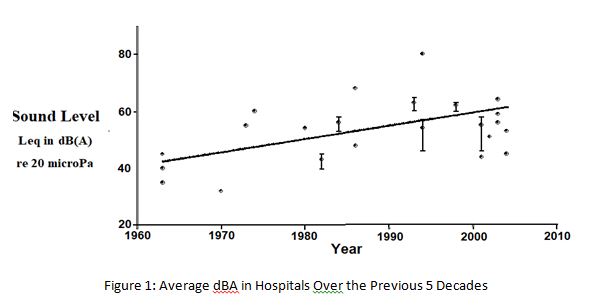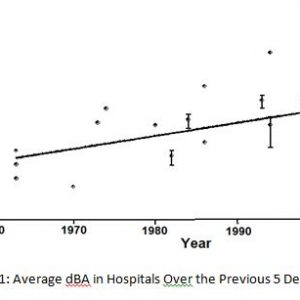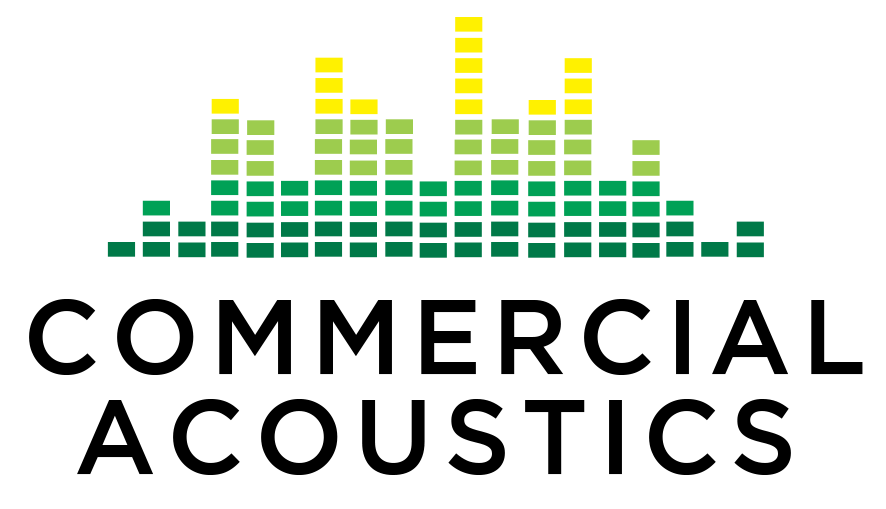Significant research has been conducted that links noise issues in hospitals with patient lack of sleep. The deteriorated sleep quality experienced by patients results in extended hospital stays, development of delirium, and other negative outcomes. By treating the underlying noise issues and associated sleep quality factors, hospitals are able to greatly improve patient satisfaction and reduce complications and hospital stay durations.
Furthermore, since Medicare reimbursements are partially based on HCAHPS scores, it is critical for many facilities to make the effort to score as well as possible. However, on the HCAHPS surveys, for all hospital categories, the rating of “quiet room” for the “always” option was lower than any of the other quality indicators, ranging between 50.8% and 55.2% of respondents. By treating this preventable issue, a significant improvement is possible for HCAHPS scores relating to noise issues in the hospital.
Hospital Noise Control
The Sound Level in Hospitals has been increasing for years2, and without a proactive approach to preventing sound-related issues and sleeplessness, continued adverse effects can be expected. While FGI, EPA, and WHO guidelines focus on the overall decibel level in hospitals, many of them are ineffective at capturing the true importance of the auditory environment. Consider the following:
- Auditory Arousal Threshold (AAT): this is the level of noise required to awaken a person from sleep. Scientists measured patients reflexes as they slowly increased the sound level and determined the number of times that the patient “awakened” throughout the night. However, when the patients were questioned in the morning, it became apparent that they greatly underestimated the number of arousal events throughout the evening. Similar to a patient with sleep apnea, they are unaware of the number of sleep disruptions that occurred throughout the evening, but are tired in the morning.
- Often times the best measure to determine if someone will awaken from an event is not the amplitude (dBA) of a sound, but rather the dynamic range, or sudden increase in noise. For instance, if you fall asleep on a busy train, your body becomes accustomed to the relatively noisy environment. A dropped glass or infant’s cough nearby may not wake you from sleep. However, the same event in a very quiet environment may easily awaken the same person. This is why Sound Masking Systems are so effective in hospital and healthcare environments. By raising the “floor” of the sound, the “peaks” are much less audible and concerning.

See more Healthcare Acoustic Case Studies or contact us at (888) 815-9691. Learn more about how Hospitals are trying to deal with Noise Issues.


